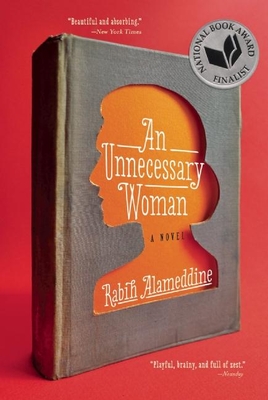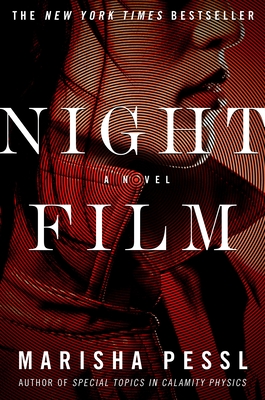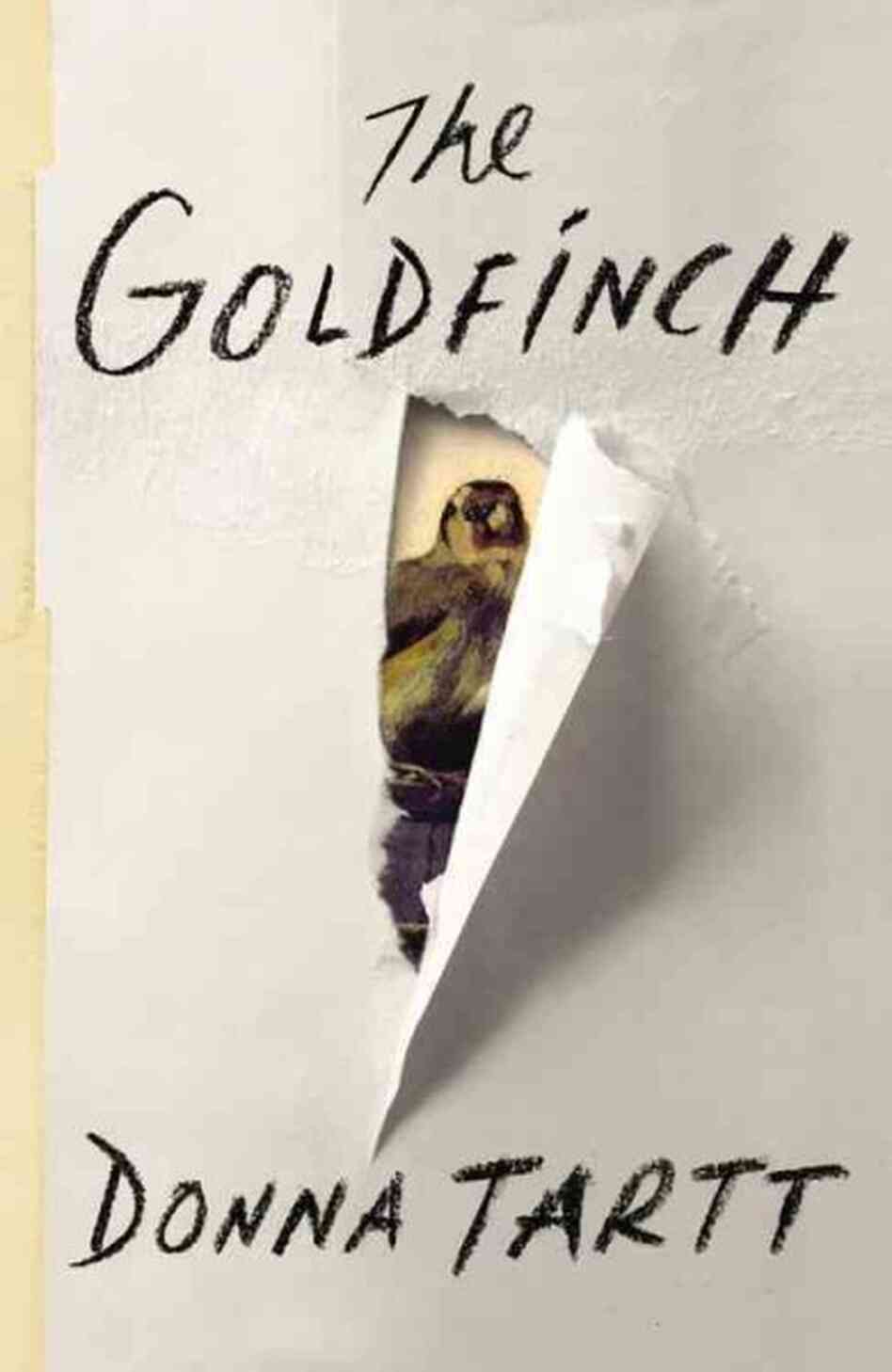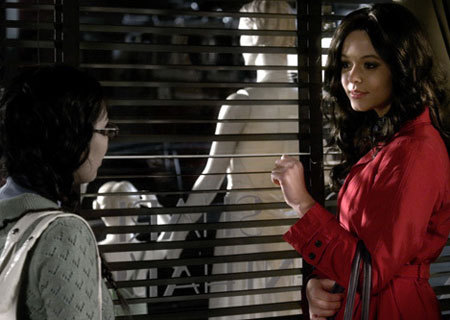Nabokovilia in Lauren Groff's Fates and Furies
There are not one but two parenthetical “Picnic, Lightning” nods at Lolita in Lauren Groff’s Fates and Furies, the first of which is
At last she nodded and bussed her tray and left; and as this was her last night at the residency, he wouldn’t see her again. [Her death would be soon and sudden. Ski tumble; embolism.] (135)
The second occurs near the end:
When, a few years later, an attorney contacted her on her phone at the theater where Lotto was helping to cast his new play, she listened intently. Her uncle, the attorney said, had died [carjacking; crowbar]. (329)
Other Lolita nods:
Thoughts of Mathilde had become amagnetic, rebounding off her, spinning outward, ending up hopelessly tangled in thoughts of an Asian nymphet cooing at him in a schoolgirl’s kilt, as fantasies tended to. (127)
She was six feet tall in bobby socks. In heels, her eyes were at his lip line. She looked up at him coolly. (38)
Nabokovilia in Andrew Sean Greer's Less
I’m late to Andrew Sean Greer’s delightful Less and loved everything about it, including its sly Pnin-ish narratorial technique and equally Pnin-ish hapless protagonist, Arthur Less. There were other, more overt Nabokov nods:
Though he was once an endowed chair at Robert’s university, he has no formal training except the drunken, cigarette-filled evenings of his youth, when Robert’s friends gathered and yelled, taunted, and played games with words. As a result, Less feels uncomfortable lecturing. Instead, he re-creates those lost days with his students. Remembering those middle-aged men sitting with a bottle of whiskey, a Norton book of poetry, and scissors, he cuts up a paragraph of Lolita and has the young doctoral students reassemble the text as they desire. In these collages, Humbert Humbert becomes an addled old man rather than a diabolical one, mixing up cocktail ingredients and, instead of confronting the betrayed Charlotte Haze, going back for more ice. He gives them a page of Joyce and a bottle of Wite-Out—and Molly Bloom merely says “Yes.” A game to write a persuasive opening sentence for a book they have never read (this is difficult, as these diligent students have read everything) leads to a chilling start to Woolf’s The Waves: I was too far out in the ocean to hear the lifeguard shouting, “Shark! Shark!”
Here’s another, less overt Nabokov nod:
“I am sorry, I have something in my eye.” Javier’s right eye is now blinking rapidly: a panicked bird. From its outer edge, a rivulet of tears begins to flow.
“Are you okay?”
Javier clenches his teeth and blinks and rubs. “This is so embarrassing. The lenses are new for me, and irritating. They are French.”
Less does not fill in the punch line. He watches Javier and worries. He once read in a novel about a technique for removing a speck from another’s eye: you use the tip of your tongue. But it seems so intimate, more intimate than a kiss, that he cannot even bear to mention it. And, being from a novel, it is possibly an invention.
And here’s the relevant Lolita passage if the bit above is unclear:
Tuesday. Rain. Lake of the Rains. Mamma out shopping. L., I knew, was somewhere quite near. In result of some stealthy manuevering, I came across her in her mother’s bedroom. Prying her left eye open to get rid of a speck of something. Checked frock. Although I do love that intoxicating brown fragrance of hers, I really think she should wash her hair once in a while. For a moment, we were both in the same warm green bath of the mirror that reflected the top of a polar with us in the sky. Held her roughly by the shoulders, then tenderly by the temples, and turned her about. “It’s right here,” she said, “I can feel it.” “Swiss peasant would use the tip of her tongue.” “Lick it out?” “Yeth. Shly try?” “Sure,” she said. Gently I pressed my quivering sting along her rolling salty eyeball.
Nabokov in The X-Files!
Check out The Enchanted Hunter motel -- a nod to Lolita's The Enchanted Hunters hotel -- in this X-Files episode from the 2016 season, "Mulder and Scully Meet the Were-Monster." The episode was written by Darin Morgan, who is no stranger to awesome Nabokov references. His 1996 X-Files episode, "Jose Chung's From Outer Space," features a space overlord named Lord Kinbote.
NaboPop: Nick Cave's "20,000 Days on Earth"
In the very Nabokovian documentary 20,000 Days on Earth, Nick Cave recalls the very earliest memory of his dad: Him reading Lolita to him, admiring the writing, and Cave admiring his father. "He became a greater thing," Cave says. Lolita recurs in the movie -- it pops up briefly in the opening sequence and will return at crucial moments. Some screencaps below.
Nabokov Sighting in Knausgaard's American Travels
Karl Ove Knausgaard travels across America, retraces Norwegian and Viking trails across the country, makes this observation: "I loved it not only because I had finally seen something in the United States that Humbert and Lolita could have seen — a fabulous entry for Nabokov’s catalog of American monuments, wonders and reconstructions — but also because it struck me that the image of reality that this particular reconstruction presented was, in a curious way, absolutely true."
From My Saga, Part 2.
Part 1 is here.
Nabokovilia: Rabih Alameddine's An Unnecessary Woman
An observer would receive the wrong impression from this salacious tableau. Their ages were wrong, I thought. Incompatible. Insidious Nabokov insinuated himself into my dreams once more, not allowing me to lose myself in watching what was before me, not allowing me to engage life. Hannah was my Humbert, the lieutenant the ingenue. Fire of my loins. They fucked, no other term can be used. Hannah and her lieutenant fucked and fucked.
(...)
...I won't translate Lolita even though I've always wanted to. It's against the rules. Nabokov's earlier work in rowdy Russian I could. "But in my arms she was always Lolita."
"Lo. Lee. Ta."
My memory has aged into an unruly child but is still quite precocious. (47-8)
Nabokovilia & Nabokomaybilia: Marisha Pessl's Special Topics in Calamity Physics & Night Film
Marisha Pessl's first novel, Special Topics in Calamity Physics, features a pretty clear case of Nabokovilia:
"You're a sick, sick liar! You're evil!"
I threw Lolita (Nabokov, 1955).
"I hope you die a slow death riddled with unbearable pain!"
Although deflecting the books with his arms, and sometimes legs, Dad didn't stand up or try to restrain me in any way. He remained in his reading chair.
"Get a hold of yourself," he said. "Stop being so melodramatic. This isn't a miniseries on AB --"
I hurled The Heart of the Matter (Greene, 1948) at his stomach, Common Sense (Paine, 1776) at his face. (461)
I'm nearly done reading Pessl's sophomore (and excellent) Night Film, which doesn't have anything quite so clear, though there's a strong possibility of some Nabokovian nods:
She was Beckman's latest housekeeper. Ever since his beloved wife, Véra, had died years ago from cancer, Beckman, totally unable to take care of himself, hired a multitude of petite Russian women to do it for him. (48)And another possible Nabokov nod:
"Need some help?"
"Yes," said Nora, setting a book she'd been leafing through -- Signs, Symbols, & Omens -- back down on the stand. "We were hoping someone could help us identify some herbs and roots that we found in strange patterns in our friend's room." (229)
Sighting: Best Last Lines
Nabopop: Franken-Olympia-Edition Lolita in Masters of Sex
(It's a frankenbook built from
 +
+  )
)
Nabokovilia: Rebecca Makkai's The Hundred-Year House
"Here's my point: The administration should not be able to access the computers of tenured faculty. Let's imagine you were looking at some Web site of a communist politician, and then you're hauled in front of a committee. When the whole point of tenure is the freedom."
"I'm not tenured."
"You've heard what's happening, I'm sure."
Zee attempted to look bewildered, but he shook his head.
"You hear everything. You know what the deans ate for breakfast. You know when Blum takes a crap. And what I want to know is, when did we become afraid of sex? We ask them to read Lolita and Chaucer, but a nude picture is going to warp their minds? They're adults!" (87)
See also: More Makkai Nabokovilia.
Goose Island's Lolita
According to the company, Lolita is "a pink rose colored Belgian style pale ale fermented with wild yeast and aged on raspberries in wine barrels. Aromas of fresh raspberries, bright jammy fruit flavors and crisp, refreshing body make Lolita ideal for beer drinkers fond of Belgian Framboise." It's been around for a few years, so the stock of underage-drinking jokes must already be exhausted, I'm betting.
Nabokovilia: Donna Tartt's The Goldfinch
Apart from that, and the door where the blonde had disappeared, the only light came from a lamp which threw a sharp white circle on melted candles, computer cables, empty beer bottles and butane cans, oil pastels boxed and loose, many catalogues raisonnes, books in German and English, including Nabokov's Despair and Heidegger's Being and Time with the cover torn off, sketch books, art books, ashtrays and burnt tinfoil, and a grubby looking pillow where drowsed a gray tabby cat. (574)
Also:
Clearly this Everett ("poor as a churchmouse" -- his phrase) was living off her money, Uncle Welty's money rather, old Europe preying off young America, to use a phrase I'd employed in my Henry James paper in my last semester of school. (463)
Compare to this bit in Nabokov's "On a Book Entitled Lolita":
...an otherwise intelligent reader who flipped through the first part described Lolita as "Old Europe debauching young America," while another saw in it "Young America debauching old Europe."
Bonus bit: Tartt quoting Nabokov on what she wants from awesome books.
Vivian Darkbloom in Pretty Little Liars
Vladimir Nabokov's anagram, Vivian Darkbloom, has appeared in Ada and Lolita (and in the Acknowledgments page of Arthur Philips's The Egyptologist). She now also appears in the ABC Family series Pretty Little Liars, where Vivian is the alter-ego of Alison DiLaurentis.
Thanks to the Nabokv-L Listserv and to Jansy Mello for the tip.
"Lolita is Famous, Not I," Visualized
But: If you remove "Vladimir" (making his name maybe 50% less unpronounceable) and remove the smoothing, the Ngram Viewer graph tells a different story: "Lolita" triumphs over Nabokov only in 1955 and 1958, the dates of Lolita's France and American publications. (Big ups to Chris Manon for pointing this out.)
Sighting: David Foster Wallace's Roll Call
It took a student a few seconds to answer when called on “Joseph Reynolds, light of my life, fire of my loins” (name changed to protect privacy). My own soft underbelly was spoken (if not written) politeness, a Midwestern habit of deference and sorrys and if-you-don’t-minds my Midwestern teacher invariably mentioned or mocked or prodded in a mild recursive torment, recursive because politeness tends to be polite about itself.
Nabokovilia: Michael Chabon
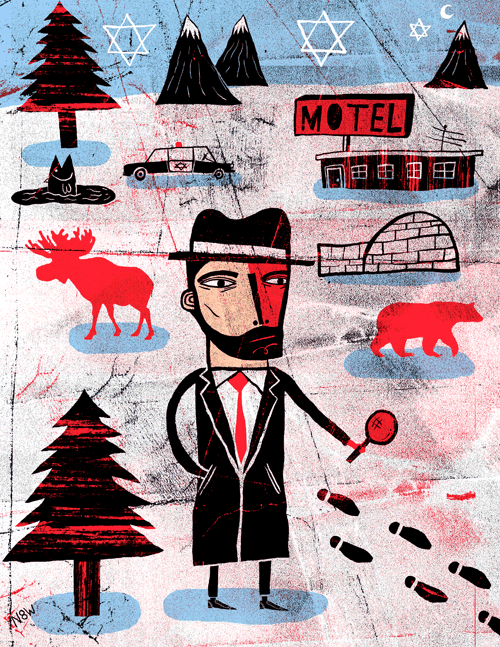
The Yiddish Policemen’s Union (2007)
Afterword: ...the Zugzwang of Mendel Shpilman was devised by Reb Vladimir Nabokov and is presented in Speak, Memory. (p. 418)
The Amazing Adventures of Kavalier & Clay (2000)
Here, in a weird radiance cast by the tails of a thousand writhing glowworms, sits on a barbarous throne a raven-haired giantess with immense green wings, sensuously furred antennae, and a sharp expression. She is, quite obviously, the Cimmerian moth goddess, Lo. We know it before she even opens her rowanberry mouth.
"You?" the goddess says, her feelers wilting in evident dismay. "You are the one the book has chosen? You are to be the next Mistress of the Night?"
Miss [Judy] Dark -- wreathed discreetly now in curling tufts of dry-ice smoke -- concedes that it seems unlikely. (p. 271)
"You have to keep with it," I told him. "You have to read on." I was making the argument I had made to myself, over the years -- to the harsh and unremitting editor who lived in the deepest recesses of my gut. It sounded awfully thin, spoken aloud at last. "It's that kind of a book. Like Ada, you know, or Gravity's Rainbow. It teaches you how to read it as you go along. Or -- Kravnik's." (p. 312)
Additional Chabon/Nabokov material:
- Michael Chabon at the Nabokov Museum (also collected in Maps and Legends)
- Michael Chabon on Wes Anderson
NEWS: Stanford Magazine's "Did Vladimir Nabokov's Sojourn on the Farm Inspire His Famous Novel?"
Over the chessboard, Lanz confided a dark secret that Nabokov told biographer Field: the memorably dapper professor led a double life. On weekends, he drove to the country to participate in orgies with “nymphets.” He forced his wife to dress as a child. Another prominent Nabokov scholar and biographer, Brian Boyd, also concluded that Lanz was a “nympholept” after reviewing Nabokov’s extensive correspondence in the New York Public Library.
Lanz was best known for his 1941 book, In Quest of Morals.
Nabopop: The Man Who Wasn't There
Viz (from the Amazon DVD description): Almost in spite of the obsessive cultural references (flying saucers, Nabokov's Lolita, Heisenberg's uncertainty principle), Ed Crane steps neatly from the fray as one of cinema's most memorably disenchanted characters.
SIGHTING: Humbert Humbert in Sweet Valley High
Somehow the thought of all these glorified young characters getting old puts me in mind of the final chapters of "Lolita," when Humbert visits Lolita (now Dolly) to find her “frankly and hugely pregnant” with a dog like a fat dolphin:
Her pale freckled cheeks were hollowed, and her bare shins and arms had lost all their tan, so that the little hairs showed. She wore a brown, sleeveless cotton dress and sloppy felt slippers.
It's a scene of horrible and excruciating diminution, made more agonizing by the fact that Humbert sees how sordid her life is—her body is—but loves her anyway. Of course, this isn’t Nabokov we’re talking about.
SIGHTING: Gina Gershon Likes Lolita
What is your favorite book?
One of my all-time favorite books is Lolitaby Nabokov. I just think he’s such an amazing writer. It’s not the favorite because I have about a zillion favorite books. I’ve always liked The Art of Happiness
, Dalai Lama’s book. I think that’s always a good go-to book if you’re feeling depressed. It puts things into perspective.





